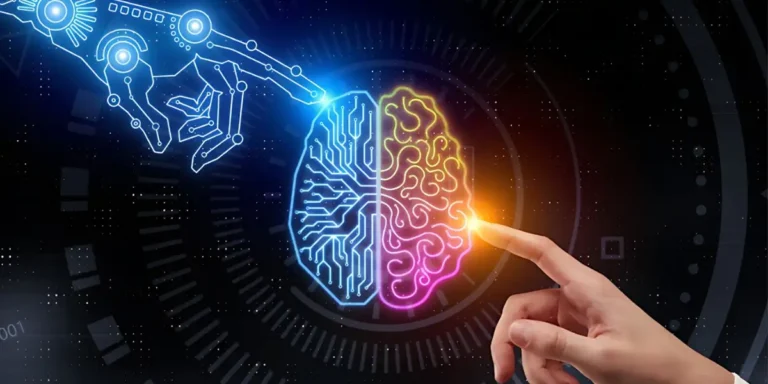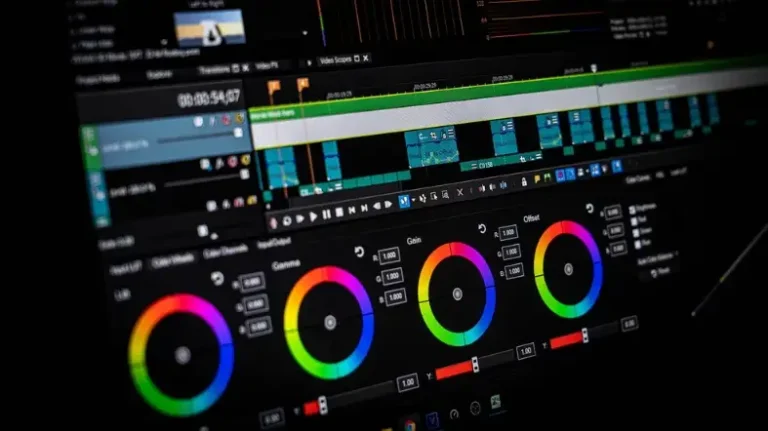One area that is being closely watched is the video game industry. With AI’s ability to learn, adapt, and make decisions, some are wondering if game developers will be replaced by AI in the near future.
In this article, we will explore the question of whether AI will replace game developers. And explore the following:
- How AI Changing the game development industry
- Required skills needed for game developers
- Examples of AI game development
- Ethical implications of AI in this sector
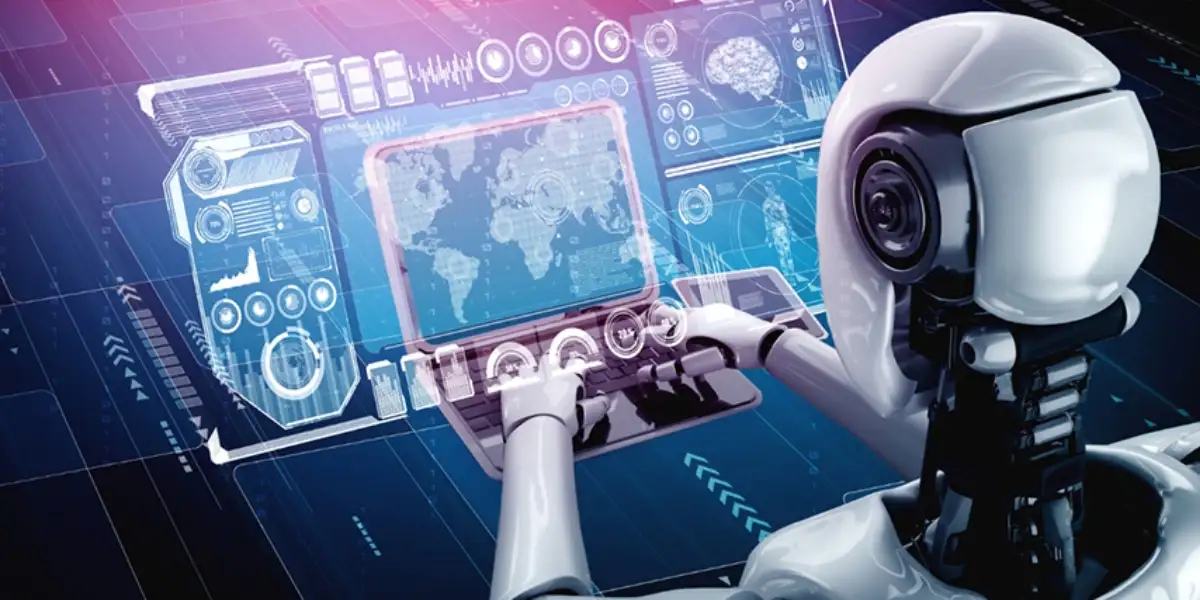
Will Ai Replace Game Developers
No, AI is unlikely to fully replace game developers in the foreseeable future.
While it can assist with certain tasks such as optimization and bug fixing, AI lacks the creative and decision-making skills necessary to design a compelling game.
AI can enhance game development, but human ingenuity and imagination are still necessary for the artistic aspects of game design.
How AI is Changing Game Development Processes
Procedural Generation
Procedural generation is the process of creating content for games using algorithms.
AI has made it possible to generate vast amounts of content for games in a matter of minutes.
This means that game developers no longer have to spend hours creating content manually, which saves time and resources.
One example of AI-powered procedural generation is in the game “No Man’s Sky,” which uses AI to create an entire universe with billions of planets.
Player Behavior Analysis
AI can be used to analyze player behavior, which can help game developers understand how players interact with their games.
This information can be used to create games that are more engaging and challenging.
For example, the game “PlayerUnknown’s Battlegrounds” uses AI to analyze player behavior and adjust the game’s difficulty level accordingly.
Adaptive Gameplay
AI can be used to create adaptive gameplay, where the game adjusts its difficulty level based on the player’s skill level.
This means that players can enjoy games that are tailored to their skill level, which makes the game more enjoyable and challenging.
For example, the game “Left 4 Dead” uses AI to adjust the difficulty level based on the player’s skill level.
Natural Language Processing
AI can be used to create more realistic and engaging characters in games by allowing them to understand and respond to natural language.
This means that players can interact with characters in the game using natural language, which makes the game more immersive.
For example, the game “Mass Effect” uses AI to create characters that can understand and respond to natural language.
Predictive Analytics
AI can be used to predict player behavior and preferences, which can help game developers create games that are more tailored to the player’s preferences.
This means that game developers can create games that are more likely to be successful and enjoyable for players.
For example, the game “Fallout 3” uses AI to predict player behavior and preferences, which helps the game developers create a more engaging and immersive game.
The Skills Needed for Game Developers in the Age of AI
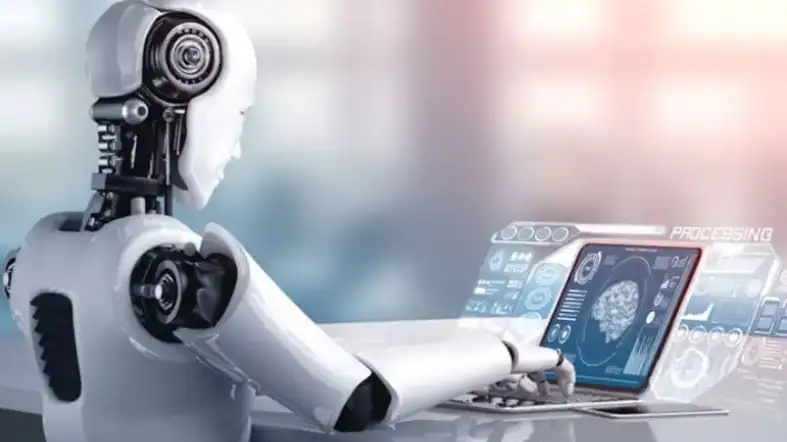
Proficiency in Programming Languages
One of the essential skills needed for game developers in the age of AI is proficiency in programming languages.
Developers need to be well-versed in coding languages such as Python, C++, and Java, which are essential for creating AI-powered games.
Game developers need to be able to program the AI algorithms that power the game’s mechanics and gameplay, as well as create the game’s user interface and graphics.
Learn AI Concepts and Algorithms
Game developers must also have a deep understanding of AI concepts and algorithms.
This includes knowledge of machine learning, natural language processing, computer vision, and other AI technologies.
By understanding these concepts and algorithms, developers can create AI-powered games that are more intelligent, dynamic, and responsive to player behavior.
For example, AI can be used to create NPCs (non-playable characters) that behave more realistically and can adapt to player behavior.
AI can also be used to improve game graphics by creating realistic textures and lighting effects based on real-world data.
Creativity and Innovation
In addition to technical skills, game developers need to be creative and innovative.
This is especially important in the age of AI, where developers are looking for new ways to enhance player experience.
AI technology provides game developers with a vast array of new tools and techniques to experiment with, and developers who are willing to take risks and try new things will be more successful in creating games that stand out in a crowded market.
Attention to Detail
Another essential skill for game developers in the age of AI is attention to detail.
AI-powered games are often more complex than traditional games, and even small errors or inconsistencies can have a significant impact on gameplay.
Developers must be meticulous in their work, ensuring that every aspect of the game is functioning properly and that AI algorithms are performing as intended.
Collaboration and Communication
Finally, game developers in the age of AI must be able to collaborate effectively and communicate clearly.
Creating AI-powered games is a team effort, and developers must work closely with AI experts, designers, and other team members to ensure that the game is functioning properly and meeting player expectations.
Clear communication is essential for ensuring that everyone on the team is on the same page and that the project is progressing smoothly.
Top 7 AI Tools for Game Development
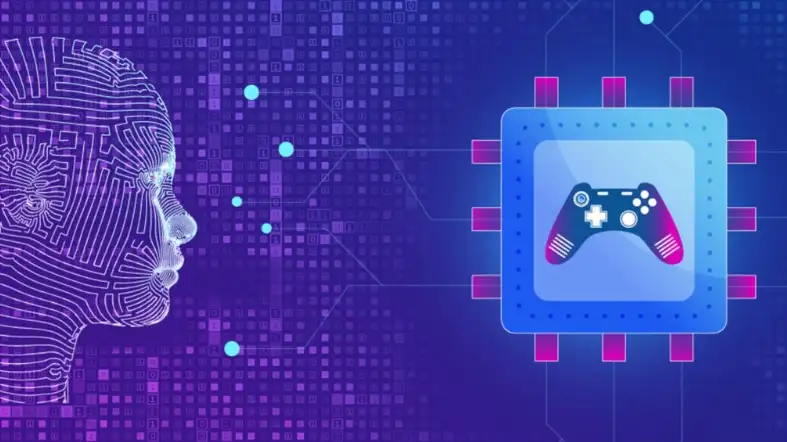
Unity ML-Agents
Unity ML-Agents is a toolkit that allows developers to train and implement machine learning models into their games.
With this tool, you can create intelligent agents that can interact with the game environment, learn from their actions, and improve their behavior over time. ML-Agents can be used to create
NPCs that can respond to player behavior, develop intelligent enemy AI, or even train an agent to play the game on its own.
TensorFlow
TensorFlow is an open-source machine learning framework that can be used for a variety of applications, including game development.
TensorFlow can be used to create intelligent agents that can learn from data, making them more efficient and effective at performing tasks within the game.
TensorFlow can also be used to generate game content, such as levels, items, or characters.
Unreal Engine 4
Unreal Engine 4 is a game engine that includes AI tools for game development.
With UE4, you can create intelligent agents that can interact with the game environment and respond to player behavior.
UE4 also includes tools for creating behavior trees, which can be used to create complex AI behaviors.
AIVA
AIVA is an AI-powered music composer that can be used to create original soundtracks for games.
With AIVA, you can generate high-quality music that can be customized to fit the tone and mood of your game.
AIVA can be used to create soundscapes, background music, or even dynamic music that changes based on the player’s actions.
GameVision AI
GameVision AI is a tool that allows developers to create intelligent NPCs that can react to player behavior.
With GameVision AI, you can create NPCs that can learn from their interactions with players and adjust their behavior accordingly.
GameVision AI also includes tools for creating dynamic dialogues and quests, making it easy to create immersive game worlds.
Autodesk Maya
Autodesk Maya is a 3D modeling tool that includes AI tools for game development.
With Maya, you can create realistic animations for characters and objects within the game.
Maya also includes tools for creating intelligent NPCs that can interact with the game environment and respond to player behavior.
NVIDIA PhysX
NVIDIA PhysX is a physics engine that includes AI tools for game development.
With PhysX, you can create realistic physics simulations that can be used to enhance gameplay.
PhysX also includes tools for creating intelligent agents that can interact with the game environment, making it possible to create more immersive and realistic gaming experiences.
Examples of AI in Game Development
Non-Player Characters (NPCs)
AI can be used to create NPCs that can interact with the player. NPCs can be programmed to act and react like real people, making the game more immersive.
For example, in role-playing games, NPCs can provide quests, trade goods, and offer services to the player.
Enemy AI
Enemy AI is used to create intelligent and challenging enemies for players to battle.
By programming enemies with AI, game developers can create enemies that can adapt to the player’s strategy and provide a more challenging experience.
For example, in first-person shooter games, enemy AI can be programmed to take cover, flank the player, or call for reinforcements.
Procedural Generation
Procedural generation is a technique used in game development that involves using algorithms to generate game content such as levels, environments, and items.
AI can be used in a procedural generation to create more complex and varied game content.
For example, in Minecraft, AI can be used to generate random terrain, biomes, and structures.
Player Analytics
AI can be used to analyze player behavior and provide insights to game developers.
By analyzing data such as player actions, preferences, and performance, game developers can make informed decisions about game design and balance.
For example, in competitive games, AI can be used to analyze player matches and provide feedback on player performance.
Voice Recognition
Voice recognition is a technology that allows players to interact with games using their voice.
AI can be used to improve voice recognition technology in games, making it more accurate and responsive.
For example, in games such as Assassin’s Creed Odyssey, players can use voice recognition to control their character’s actions and dialogue choices.
Pathfinding
Pathfinding is the process of finding a path between two points in a game environment.
AI can be used to create more efficient and realistic pathfinding algorithms for game characters.
For example, in games such as Grand Theft Auto, AI can be used to create realistic traffic patterns and pedestrian behavior.
Dynamic Difficulty Adjustment
Dynamic Difficulty Adjustment (DDA) is a technique used in game development that involves adjusting the difficulty of the game based on the player’s skill level.
AI can be used in DDA to create a more personalized and challenging gaming experience.
For example, in racing games, AI can be used to adjust the difficulty of the AI opponents based on the player’s skill level.
The Ethical Implications of AI in Game Development
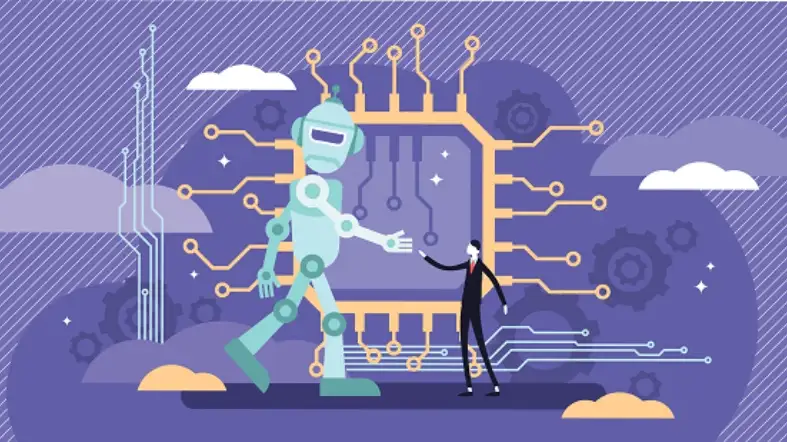
The Impact of AI on Gameplay
AI has the potential to significantly impact gameplay, allowing for more sophisticated and realistic game mechanics.
However, this can also create a power imbalance between players and game developers, as AI-controlled characters or systems may be designed to be too difficult to beat or too easy to manipulate.
This can lead to player frustration or even addiction as players struggle to win or become too reliant on AI systems.
Data Privacy and Security Concerns
AI systems in games often rely on collecting and analyzing player data to improve gameplay experiences.
However, this raises important concerns about data privacy and security. Players may not be aware of what data is being collected and how it is being used.
In addition, there is a risk of data breaches, which can result in sensitive player information being exposed.
Bias and Discrimination in AI
AI systems in games can also be prone to bias and discrimination, as they may perpetuate stereotypes or favor certain groups of players over others.
For example, a game that uses facial recognition technology to map a player’s facial expressions could result in discrimination against players with certain physical features.
Additionally, AI systems may be trained on biased data sets, resulting in discriminatory outcomes.
Responsibility and Accountability
As with any technology, those who create and implement AI in games have a responsibility to ensure that it is used ethically and responsibly.
This includes considering the impact of AI on gameplay, data privacy and security, and potential bias and discrimination.
Developers must also be held accountable for any negative outcomes resulting from the use of AI in their games.
FAQs
What Limitations Does AI Have In Game Development?
AI technology is not yet advanced enough to fully replicate human creativity and decision-making, which is an essential part of game development.
Additionally, AI is limited by the data it’s trained on and cannot always account for unexpected player behavior.
Will AI Take Away Jobs From Game Developers?
While AI may automate certain tasks in game development, it’s unlikely to replace human developers completely.
Instead, it will likely change the nature of their work, requiring them to work alongside AI and adapt to new technologies.
How Can Game Developers Prepare For The Integration Of AI In Their Work?
Game developers can prepare for the integration of AI by staying up-to-date with the latest advancements in AI technology, developing their skills in AI-related fields, and embracing the use of AI as a tool to enhance their work rather than a replacement for it.
Conclusion
while AI has the potential to transform the video game industry in many positive ways, it is unlikely that it will completely replace game developers anytime soon.
While AI may be able to create simple games or generate content for existing games, game development is a complex and creative process that requires human expertise and creativity.
Rather than replacing game developers, AI is more likely to be used as a tool to assist developers in their work, allowing them to focus on the aspects of game development that require human ingenuity and imagination.
Ultimately, the relationship between AI and game developers will be one of collaboration, not competition.

